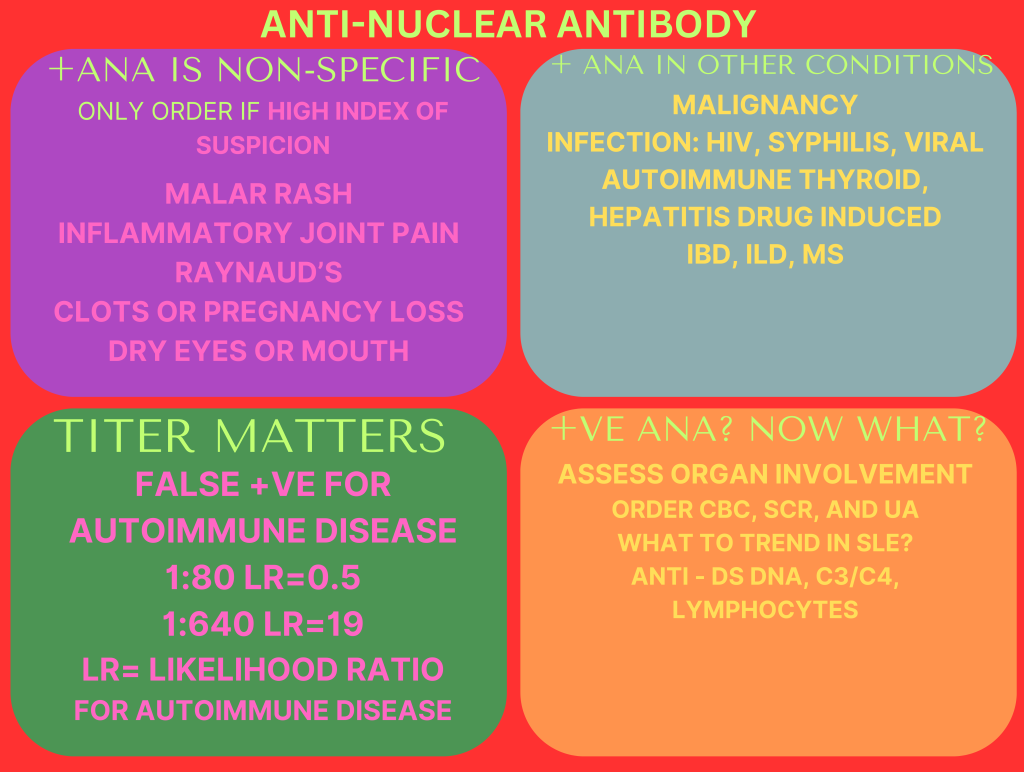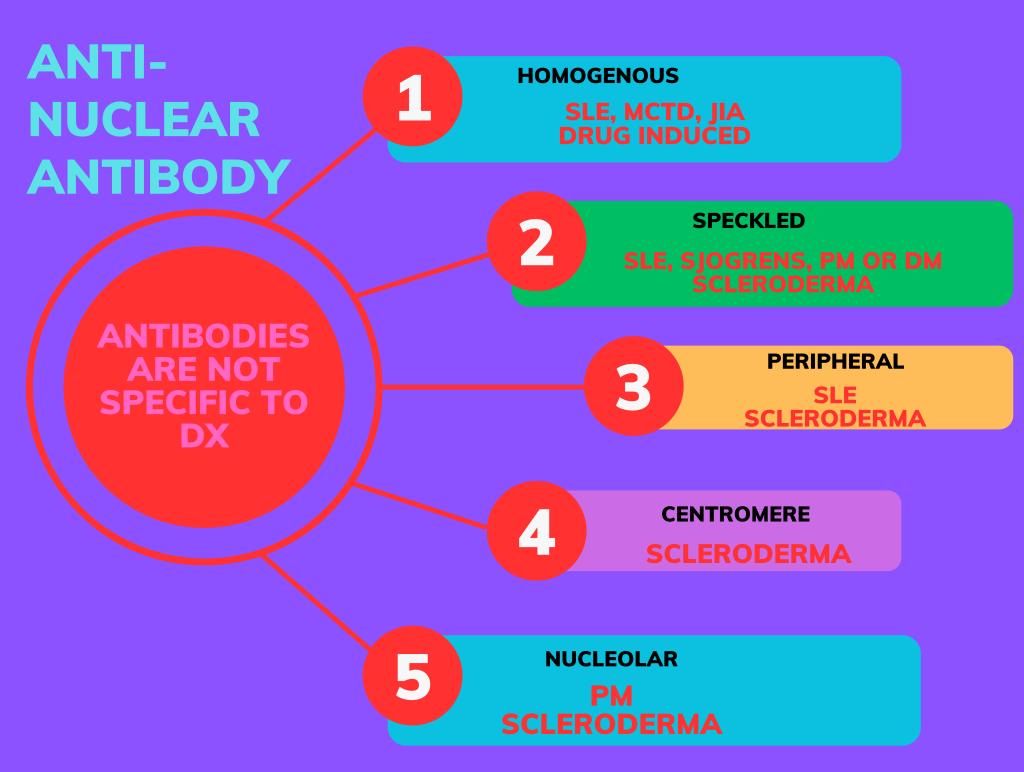What do antinuclear antibodies refer to?
A healthcare provider might recommend testing for antinuclear antibodies (ANA) when assessing a potential autoimmune disease in a patient. Antibodies, essential proteins in the immune response, are typically generated to combat infections caused by bacteria or viruses. However, in autoimmune conditions, the immune system malfunctions, leading to the production of excessive antibodies that target the body’s tissues. These self-directed antibodies, known as autoantibodies, can trigger inflammation and damage to various organs and tissues, including blood cells, skin, joints, kidneys, lungs, the nervous system, and others.
The ANA test specifically identifies autoantibodies that attack substances within cells. Despite its name suggesting a focus solely on antibodies targeting components within the nucleus, the test can also detect antibodies attacking cellular components located in the cytoplasm outside the nucleus.
ANA Test
The ANA test detects antinuclear antibodies (ANA) in your blood, which are produced by your immune system to combat infections. A positive ANA test usually indicates an autoimmune reaction, where the immune system mistakenly attacks its tissues. Nevertheless, some individuals may test positive for ANA even without any underlying health issues.


Reasons for Undergoing an Antinuclear Antibody Test
An antinuclear antibody test serves to identify specific types of antibodies present in the body. Patients undergoing cancer treatment or receiving certain medications may test positive on an ANA test. Occasionally, even individuals in good health may register a positive result. However, a doctor can provide clarification on whether the outcome is within the normal range or if further diagnostic tests are necessary.
If you experience the following symptoms, your doctor might recommend an ANA test:
Joint and/or muscle pain, stiffness, or swelling.
A red rash on the cheeks
Recurring or persistent fever
Fatigue
Weakness
Numbness and tingling in the hands or feet.
Sensitivity to light
Hair loss
Understanding the Implications of a Positive ANA Result
If your ANA test yields a positive result, it indicates the presence of antinuclear antibodies in your bloodstream. This outcome can occur in conditions such as SLE (lupus), other autoimmune diseases, or even viral infections. However, a positive result doesn’t necessarily signify a chronic illness; it could also be due to certain prescribed medications. To gain a clearer understanding of your situation, consider scheduling an appointment for further discussion.
Is Vitamin D Deficiency Linked to a Positive ANA?
Indeed, research indicates that individuals with severe vitamin D deficiency are more likely to test positive for ANA. Moreover, vitamin D deficiency is often associated with autoimmune diseases. Therefore, insufficient levels of vitamin D could contribute to a positive ANA test result.
Can Low Vitamin D Levels Lead to a Positive ANA?
Deficiencies in vitamin D can heighten the risk of various autoimmune conditions such as rheumatoid arthritis (RA), type 1 diabetes, multiple sclerosis, and Hashimoto’s thyroiditis. Consequently, vitamin D plays a significant role in regulating the human immune system, and its deficiency may result in a positive ANA (antinuclear antibody) report.
Does Stress Contribute to a Positive ANA Result?
Indeed, recent research suggests a potential link between severe stress and autoimmune diseases like rheumatoid arthritis and lupus. Moreover, individuals previously diagnosed with stress-related disorders have an elevated risk of developing autoimmune conditions later in life. Therefore, individuals experiencing stress-related issues are more likely to receive a positive ANA test result.
Interpreting Antinuclear Antibody Test Results
A positive outcome from your test indicates the presence of antinuclear antibodies in your blood, while a negative result signifies their absence. However, a positive test doesn’t necessarily imply an autoimmune condition. It’s worth noting that between 3% and 15% of individuals without any underlying conditions may have antinuclear antibodies. Additionally, certain medications or other diseases can also trigger their presence.
It’s important to understand that not all individuals with autoimmune diseases will test positive for antinuclear antibodies. Consequently, the ANA blood test serves as just one component of a doctor’s diagnosis of autoimmune diseases. Your healthcare provider will also evaluate your symptoms, conduct a physical examination, and likely order other diagnostic tests.
Conditions commonly associated with a positive ANA test include systemic lupus erythematosus, Sjögren’s syndrome, scleroderma, rheumatoid arthritis, polymyositis, mixed connective tissue disease, juvenile chronic arthritis, dermatomyositis, polyarteritis nodosa, and autoimmune hepatitis.
Furthermore, certain conditions can also yield a positive ANA test result, such as Raynaud’s syndrome, thyroid diseases (such as Hashimoto’s thyroiditis and Grave’s disease), liver diseases (including autoimmune hepatitis and primary biliary cirrhosis), inflammatory bowel disease, lung diseases (such as idiopathic pulmonary fibrosis), cancer, and viral infections.
Approximately 20% of healthy individuals may test positive for antinuclear antibodies despite not having an autoimmune disease. Factors such as being a woman aged 65 or older, having certain infections like mononucleosis or tuberculosis, or taking specific medications like blood pressure or anti-seizure drugs, may increase the likelihood of a false positive result.
